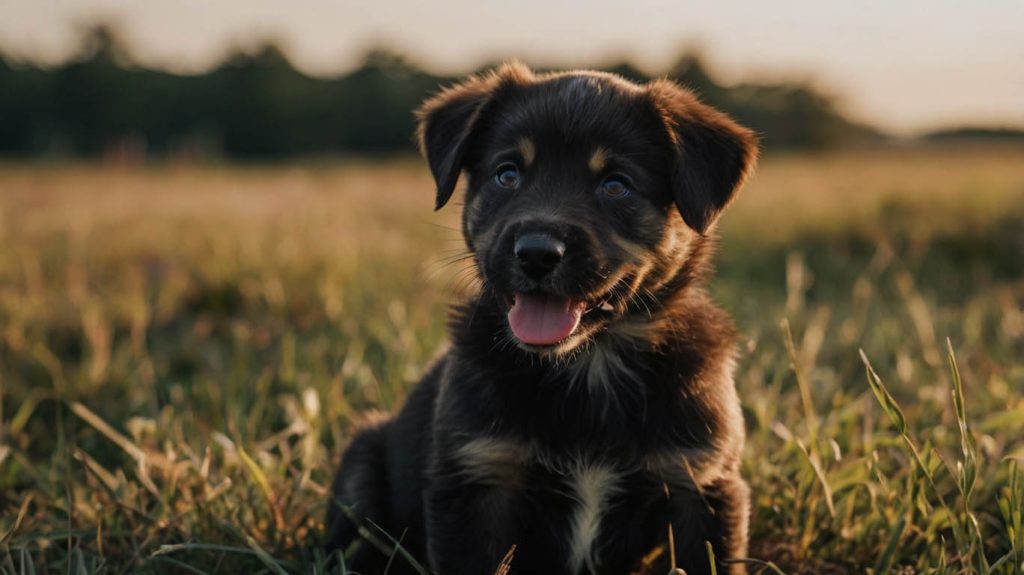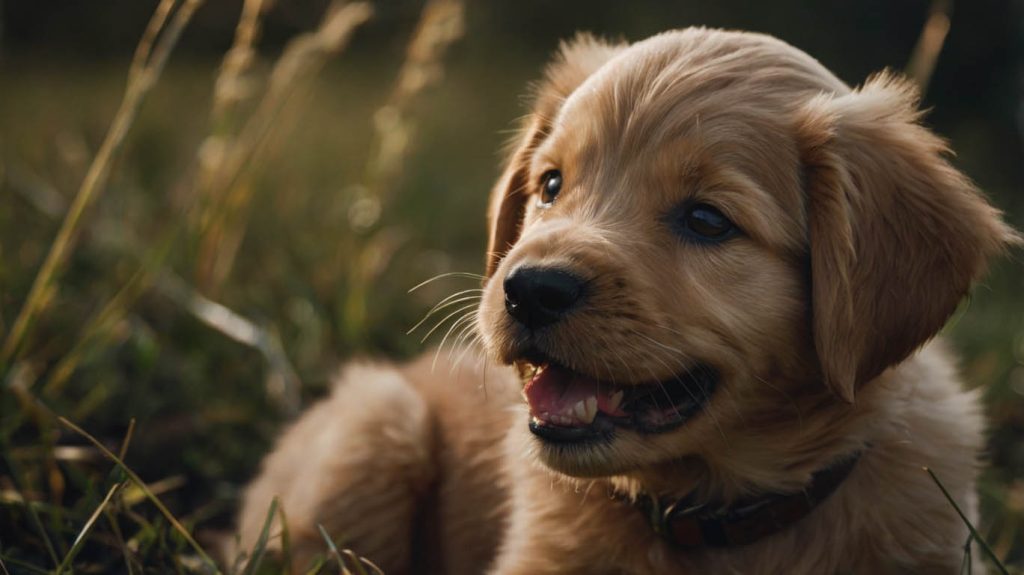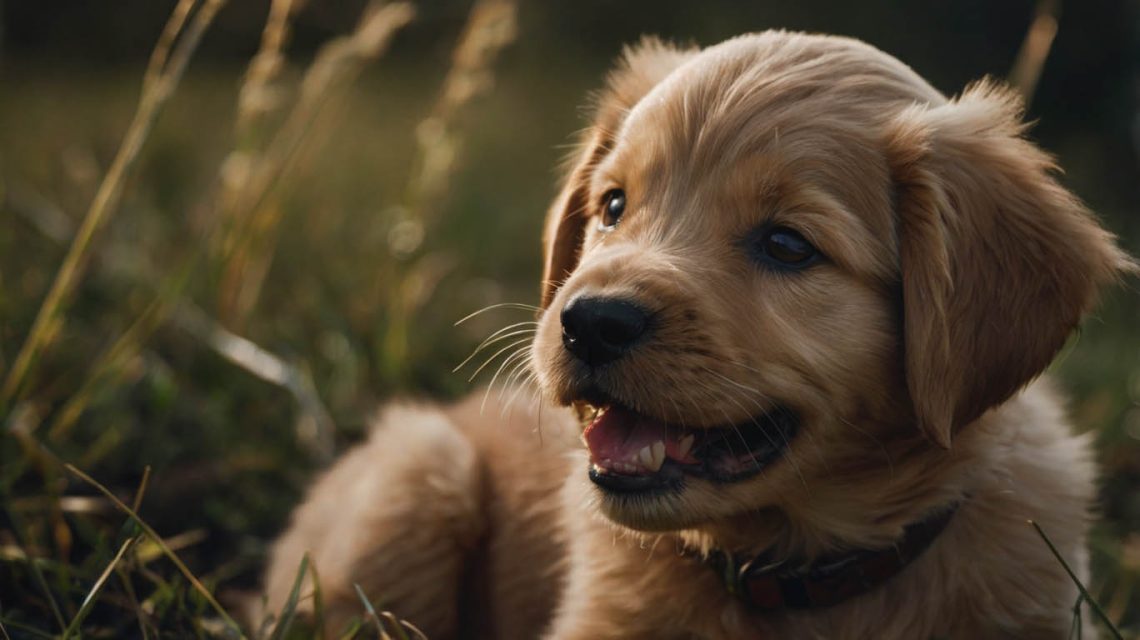The Complete Guide: What Age Do Puppies Stop Biting?
The story is a familiar one for every new puppy owner. You bring home an adorable, fluffy bundle of joy. The first few days are pure bliss, filled with cuddles and cute photo ops. Then, it begins. Suddenly, your sweet puppy transforms into a tiny piranha, and your hands, ankles, and pant legs become their favorite chew toys. This relentless nipping can be both painful and frustrating, leading you to ask the desperate, all-important question: What age do puppies stop biting?
While it may feel like this “land shark” phase will last forever, rest assured, it is a normal part of puppyhood that has a definitive end. This comprehensive guide will tell the complete story of puppy biting. We will begin by exploring why this behavior is so common and even necessary for development. Subsequently, we will provide a realistic timeline for when you can expect relief. Furthermore, we will arm you with the most effective, vet-approved training techniques to manage and stop the biting. Consequently, you will move from being a frustrated chew toy to an empowered, confident puppy parent.
Why Puppy Biting is Normal (and Even Necessary)
Before we can answer what age do puppies stop biting, it’s crucial to understand why they do it in the first place. This behavior isn’t driven by aggression; it’s a natural and essential part of their development, driven by two primary factors.

Optimizing Your Understanding of Puppy Teething
Just like human babies, puppies explore the world with their mouths. This oral fixation goes into overdrive during the teething process.
- The Teething Timeline: Puppies start losing their sharp baby teeth around 3-4 months of age, and their adult teeth begin to erupt. This process is uncomfortable and often painful. Chewing and biting on things—including you—helps to relieve the pressure and pain in their gums. This intense phase typically lasts until they have all of their adult teeth, around 6 months of age.
Using Biting to Learn a Crucial Life Skill: Bite Inhibition
The second reason for biting is even more important: they are learning how to control the pressure of their jaw. This is called bite inhibition. When puppies play with their littermates, they bite each other constantly. If one puppy bites another too hard, the victim will yelp and stop playing. This is a critical lesson: “If you bite too hard, the fun stops.” This social feedback teaches them to be gentle. Your job, as their new family, is to continue these lessons.
So, What Age Do Puppies Stop Biting? The Realistic Timeline
Now for the answer you’ve been waiting for. With a combination of physical maturity and consistent training, you can expect a significant decrease in puppy biting.
Most puppies will naturally begin to outgrow the intense biting phase between 6 and 8 months of age, once all their adult teeth have come in.
However, this is not a magic switch. The biting doesn’t just stop on its own one day. It stops because the primary physical cause (teething) has ended, and because you have been consistently teaching them that biting humans is not acceptable. Without proper training, some dogs may continue to use their mouths inappropriately well into adulthood. Therefore, understanding what age do puppies stop biting is less about a date on the calendar and more about the result of your training efforts.

Top Strategies to Teach Your Puppy to Stop Biting
Your active participation is the key to ending the biting phase quickly. Here are the most effective techniques recommended by trainers and veterinarians.
Mastering Redirection: Your Most Powerful Tool
This is the single most important strategy. The goal is not just to stop the puppy from biting you but to teach them what they should bite instead.
- How it Works: The moment you feel your puppy’s teeth on your skin, immediately stop all interaction. Do not pull your hand away quickly, as this can trigger their prey drive and make them bite harder. Instead, make your hand go limp and say “Ouch!” in a firm, sharp tone. Then, immediately offer them an appropriate chew toy. When they take the toy, praise them enthusiastically. You are teaching them: “Biting skin stops the fun, but biting this toy earns me praise.” Always have a toy within reach.
Teaching Bite Inhibition: The “Ouch!” and Time-Out Method
This technique mimics the feedback puppies get from their littermates.
- The “Ouch!”: When your puppy nips, let out a high-pitched “Ouch!” or “Yelp!” For many puppies, this is enough to startle them into momentarily stopping.
- The Time-Out: If the “Ouch!” doesn’t work or seems to excite your puppy even more, use a time-out. Calmly and without anger, say “Too bad,” and walk away for 15-30 seconds, ignoring them completely. This social isolation is a powerful consequence for a puppy. After the short time-out, you can return and resume play.
The Importance of Socialization in Stopping Biting
Proper socialization is crucial. Allowing your puppy to play with other well-behaved, vaccinated puppies and adult dogs is invaluable. They are the best teachers of bite inhibition. Reputable sources like the American Kennel Club (AKC) emphasize how vital this is for a well-rounded dog.
What NOT to Do When Dealing with Puppy Biting
How you react is just as important as the training you implement. Avoid these common mistakes, which can make the problem worse.
- Never Use Physical Punishment: Do not hit, slap, hold your puppy’s mouth shut, or perform an “alpha roll.” This can create fear, anxiety, and may lead to actual aggression.
- Don’t Yell or Scream: This can either scare your puppy or make them think you’re just playing an exciting, loud game.
- Don’t Encourage Biting Games: Avoid wrestling games where you let the puppy mouth your hands. This sends mixed signals.
Your Journey from Piranha to Perfect Pet
The path from a nippy land shark to a well-mannered companion is a story of patience, consistency, and understanding. Knowing the answer to what age do puppies stop biting is the first step. The journey is completed by actively teaching them the rules of their new human world. By understanding their needs, redirecting their behavior, and providing plenty of appropriate outlets for chewing, you can successfully navigate this challenging but temporary phase.
What is your biggest puppy biting challenge? Share your stories and questions in the comments below! For more tips on getting through the early months, check out our essential guide on [Your Ultimate Puppy Survival Checklist].


